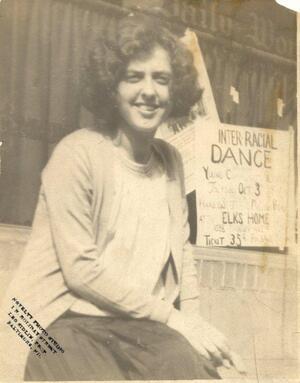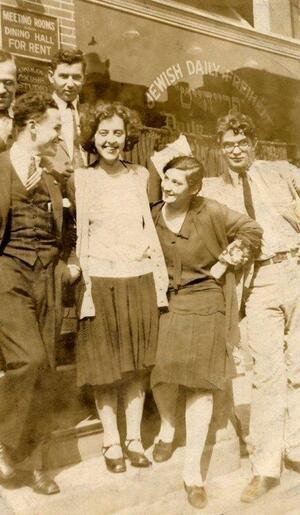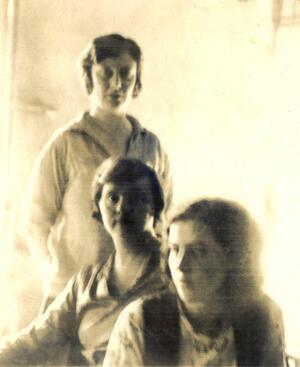Death of social activist Sophie Gerson
A legendary figure in the history of textile union organizing in the South and a lifelong fighter for peace, justice, and socialism, Sophie Gerson died on this day in 2006 at the age of 96.
In 1929, when Sophie was only 19, she hitchhiked to Gastonia, North Carolina to join in support of 2,000 workers on strike at the Loray textile mill. Having been evicted from their company housing, the strikers were living in a tent city outside of town. When company enforcers attacked the encampment, the police chief was killed in the melee. Sixteen strikers and their supporters, including Sophie and two other women, Vera Buch and Amy Schecter, were arrested and charged with murder.
Defended by the National Textile Workers Union and the International Labor Defense, the defendants had their trial moved to another town and were later acquitted. Sophie continued her work with the NTWU and was later arrested twice for “illegal picketing” during a textile strike in Paterson, New Jersey.
Sophie Melvin was born Feb. 22, 1910, in a Jewish village in the Ukraine, the second youngest of six children. With her mother Esther and youngest brother Moish (Murray), Sophie came to the United States, settling in Brownsville, Brooklyn. In her teens, Sophie attended marches and rallies, and at age 16 she helped staff a day camp for the children of striking wool workers. During the Great Depression, Gerson worked to mobilize a demonstration of 100,000 of the unemployed in Union Square on March 6, 1930. She married Si Gerson in 1932 when she was 22. She continued to work for workers’ rights on the issues of unemployment compensation, Social Security, laws upholding workers’ union rights, and a ban on job discrimination based on race and gender.
Following Si’s service in the Pacific during World War II, the Gersons moved to Bensonhurst, Brooklyn, where Si and Sophie raised their two children, William and Deborah. Si Gerson was one of dozens of Communist Party leaders indicted under the Smith Act in 1949 and 1950, charged with advocating the overthrow of the government by “force and violence.” Gerson threw herself into the Families Committee of Smith Act Defendants, which organized material and emotional assistance for the defendants and their families. Si was acquitted, but in 1953, in what Si called “a low, vindictive blow at my family,” the federal government attempted unsuccessfully to strip Sophie of her citizenship and deport her.
In her later years, Sophie was a tireless activist for the National Council of Senior Citizens, fighting for universal health care and defense of Social Security. A joyful grandmother, she loved being with children and said she regretted that she hadn’t had more.
Sources: “Sophie Gerson, labor heroine and communist, 96,” People’s World; “March 20,” This Day in Jewish History; “Sophie Gerson,” We Remember.






we owe so much to the women like Sophie, Vera and Amy